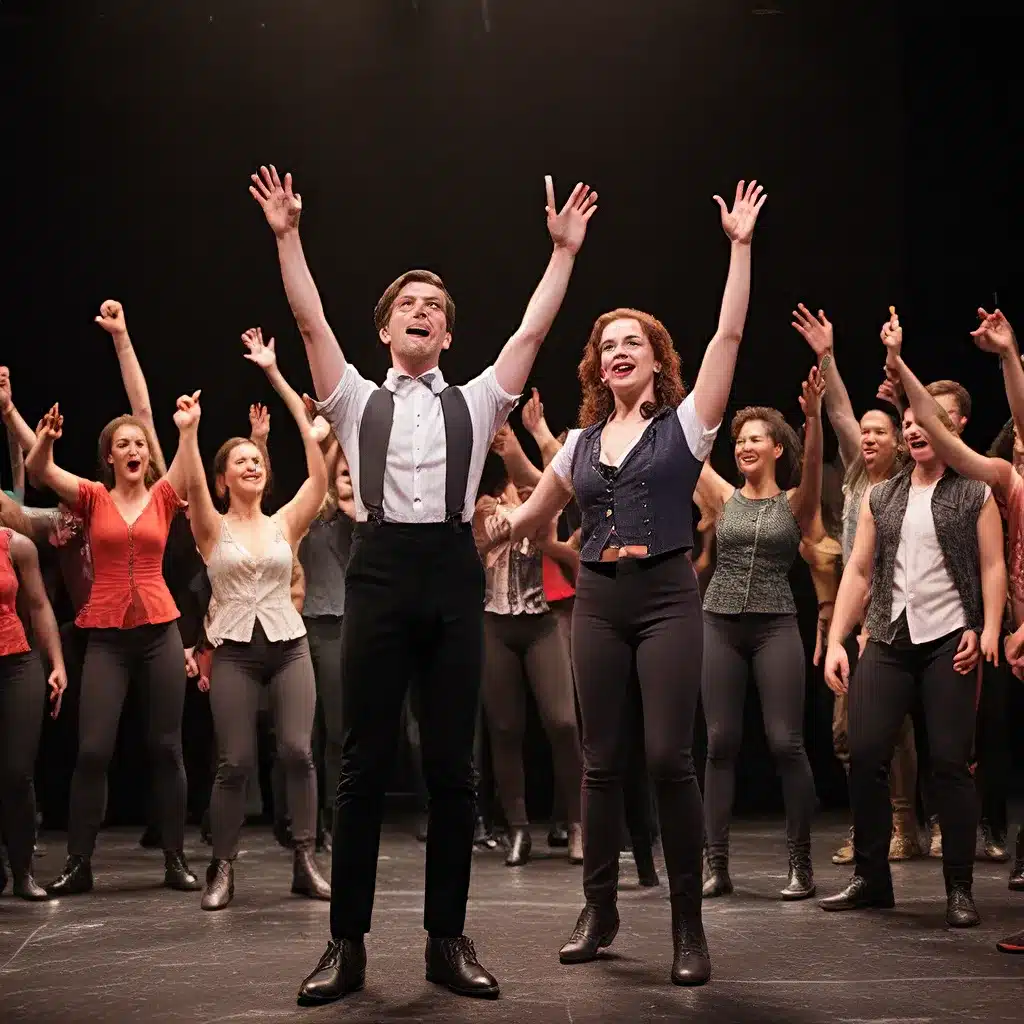
As an artist, educator, and lifelong student of the performing arts, I’ve had the privilege of witnessing the evolution of musical theater pedagogy over the past decade. It’s been an exhilarating ride, filled with innovative approaches, cutting-edge technologies, and a renewed emphasis on inclusivity and accessibility. And let me tell you, the future of musical theater education is looking brighter than a spotlight on opening night.
Embracing the Diversity of Musical Theater
One of the most exciting trends I’ve observed is the growing recognition of the rich tapestry of cultures and traditions that shape the world of musical theater. The New Jersey Student Learning Standards for Visual and Performing Arts highlight the importance of exploring diverse artistic expressions, including those rooted in various ethnic, social, and cultural contexts. This shift in perspective has opened the doors to a more inclusive and representative curriculum, empowering students to discover the global influences that have contributed to the evolution of this dynamic art form.
Take, for example, the rich tradition of hip-hop culture, which has been steadily making its mark on the musical theater landscape. As the Kennedy Center’s resource on hip-hop eloquently states, this genre has “blended and transcended” its artistic elements to become a “means for seeing, celebrating, experiencing, understanding, confronting, and commenting on life and the world.” By embracing the power of hip-hop’s storytelling, rhythmic intensity, and collaborative spirit, musical theater educators are empowering students to find their unique voices and perspectives.
Harnessing the Power of Technology
The digital age has also ushered in a new era of possibilities for musical theater education. As research has shown, the integration of technology-based tools and resources can significantly enhance the learning experience, fostering greater engagement, collaboration, and creative expression.
Imagine a world where students can immerse themselves in virtual reality, choreographing intricate dance numbers or exploring the inner workings of a professional sound system. Or consider the potential of online platforms that allow for real-time feedback, personalized coaching, and collaborative songwriting sessions – all from the comfort of their own homes. The possibilities are endless, and forward-thinking musical theater programs are seizing these opportunities to redefine the educational landscape.
Cultivating Holistic Well-Being
Another vital trend in musical theater pedagogy is the emphasis on holistic well-being. Gone are the days when the focus was solely on technical mastery and performance excellence. Today, educators are recognizing the importance of nurturing the emotional, mental, and physical health of their students.
Through initiatives like mindfulness workshops, stress management techniques, and inclusive casting practices, musical theater programs are empowering their students to develop a deeper understanding of themselves and their unique strengths. By prioritizing self-care and fostering a supportive, non-judgmental environment, these programs are helping to cultivate well-rounded, resilient artists who are better equipped to navigate the demands of the industry.
Embracing the Power of Collaboration
One of the hallmarks of the musical theater art form is its inherent collaborative nature. From the director and choreographer to the actors and musicians, each member of the creative team plays a vital role in bringing a production to life. The Musical Theater Center recognizes the importance of this collaborative spirit and has made it a cornerstone of its educational approach.
Through interdisciplinary workshops, cross-pollination of ideas, and opportunities for peer-to-peer mentorship, students are learning to embrace the power of collaboration. They’re not just honing their individual skills; they’re also developing the crucial soft skills of communication, empathy, and problem-solving that are essential in the fast-paced, ever-evolving world of musical theater.
Empowering the Next Generation of Musical Theater Innovators
As I look to the future of musical theater education, I can’t help but feel a sense of excitement and optimism. The trends I’ve highlighted – from embracing diversity to harnessing technology, cultivating holistic well-being, and fostering collaborative creativity – are reshaping the way we approach this art form.
By equipping our students with the tools, knowledge, and mindset to thrive in the ever-changing landscape of musical theater, we’re not just preparing them for success – we’re empowering them to become the innovators and visionaries who will shape the future of this dynamic and enduring art form.
So, whether you’re a seasoned theater professional, an aspiring student, or simply a passionate patron of the arts, I invite you to join me in celebrating the incredible potential of musical theater education. The curtain is about to rise on a new era of artistic excellence, and I can’t wait to see what the next generation of performers, directors, and creators will bring to the stage.

